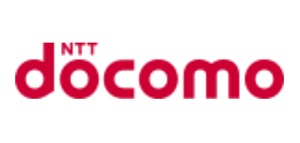Japanese telecom major Nippon Telegraph and Telephone Corp (NTT) plans to take its wireless carrier business Docomo private in a 4.25 trillion yen ($40 billion) tender offer for 34 per cent of NTT Docomo’s common stock that it does not own.

The buyout comes as new prime minister Yoshihide Suga calls on wireless carriers to reduce prices, with the government hoping resultant savings will stimulate consumer spending elsewhere in the economy.
NTT Docomo, Inc on Tuesday issued a press release entitled `Announcement of opinion in support of the tender offer by Nippon Telegraph and Telephone Corporation, the parent of the company for the stock of the company, and recommendation of tender."
NTT is offering JPY 3,900 (or about $36.93) per share (ADS) of Docomo’s common stock, a premium of 40.5 per cent to Monday's closing price.
An NTT release said the company planned to acquire all shares of the common stock through the tender offer, the offeror is required to solicit an offer to buy all share certificates as per regulations.
The classes of share certificates, etc to be purchased include the American depositary shares issued in the United States by The Bank of New York Mellon (the Depositary Bank), each of which represents the ownership of one share of the common stock deposited with the Depositary Bank.
However, as the ADSs are securities issued in the United States, it is practically difficult for Tokyo-based NTT to acquire the ADSs through the tender offer conducted outside Japan. NTT, therefore, will accept only tenders of the shares of the common stock, and not tenders of the ADSs themselves, in the transaction, but rather tenders of shares of the common stock represented by ADSs. NTT, therefore, has asked the holders of ADSs who wish to tender in the tender offer to surrender their ADSs to the depositary bank and withdraw the shares of the common stock represented by the ADS before tendering the shares of the common stock.
According to NTT, as of date, it owned 2,137,733,200 shares of the common stock (ownership ratio, 66.21 per cent), which are listed on the First Section of the Tokyo Stock Exchange, Inc, and the company is its consolidated subsidiary.
Since NTT intends to make the company a wholly-owned subsidiary, it has set the minimum number of share certificates, etc to be purchased in the tender offer at 14,686,300 shares (ownership ratio: 0.45 per cent), and if the total number of share certificates, etc tendered in response to the tender offer is less than the minimum number of shares to be purchased, it will not purchase any of the tendered share certificates.
NTT spun off NTT Docomo in 1992 ahead of listing in 1998, as the government sought to stimulate competition in the telecoms sector. Buying it back would mark the end of a prominent parent-child listing that are frowned upon abroad yet common in Japan.
At $40 billion, NTT’s tender offer is among the largest deals this year globally, Refinitiv data showed.
“Post acquisition, Docomo will no longer be answerable to shareholders. If the government instructs it to cut prices, it will oblige,” Jefferies analyst Atul Goyal wrote in a client note.
NTT, a former state monopoly, still counts the government as its largest shareholder with a 34 per cent stake.


















